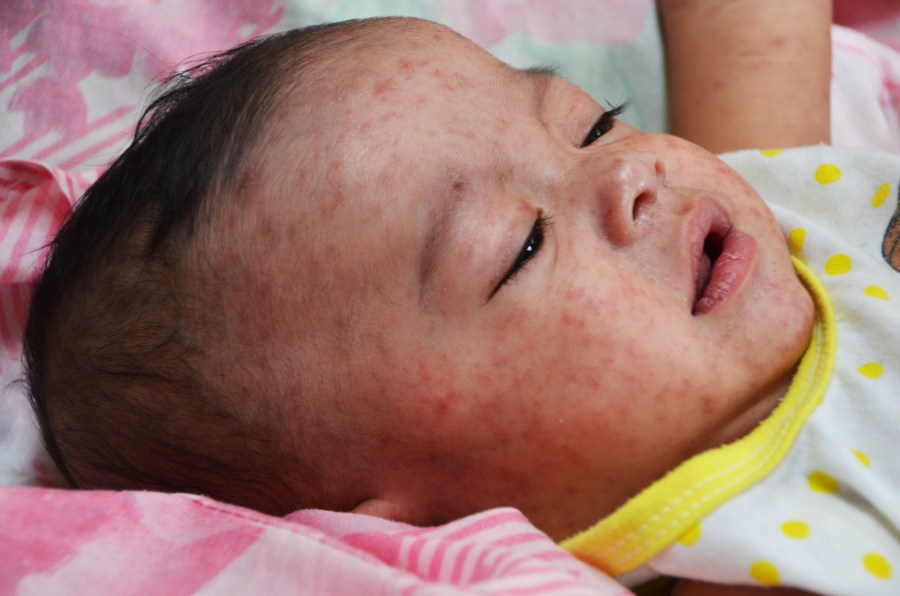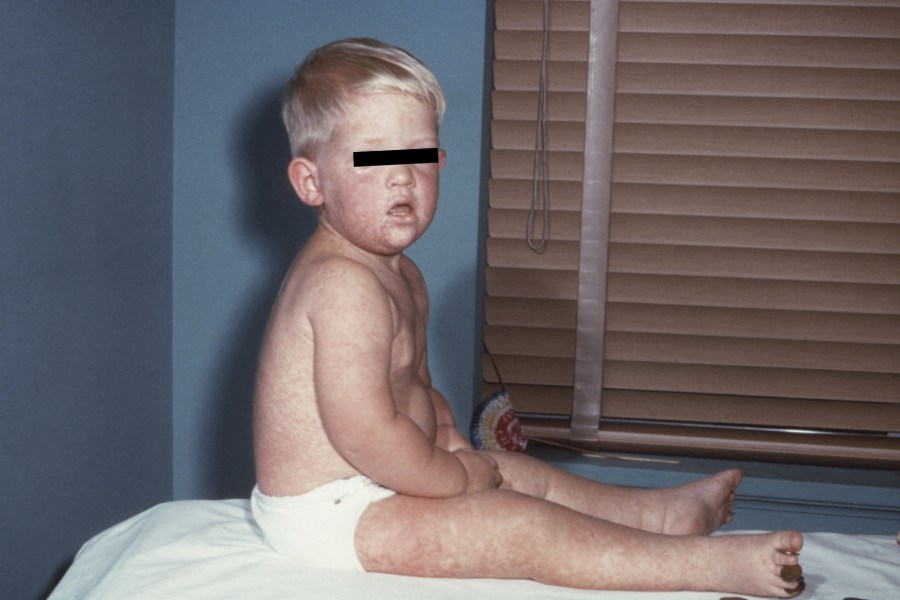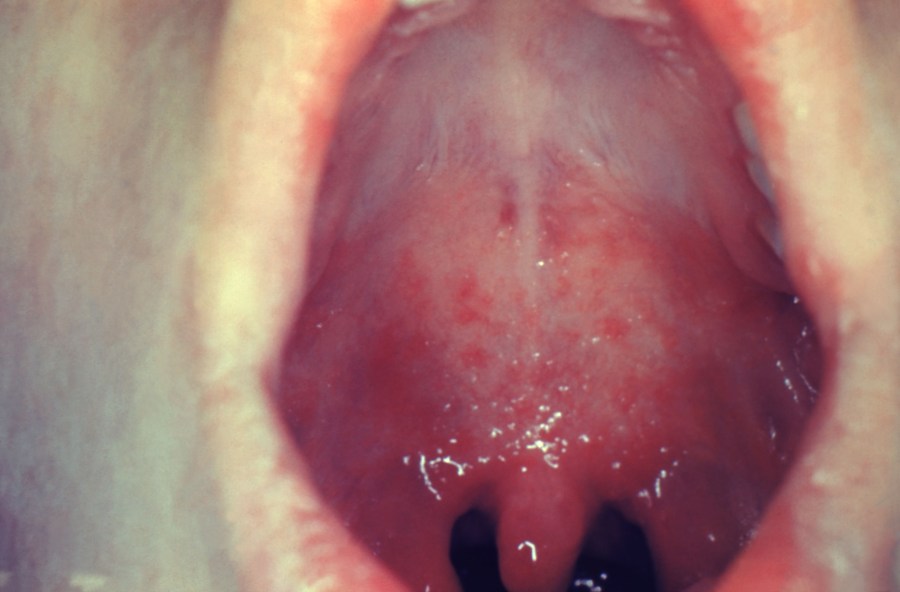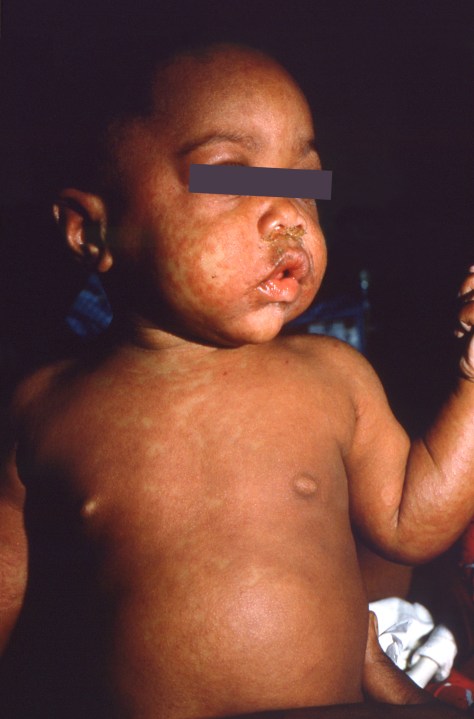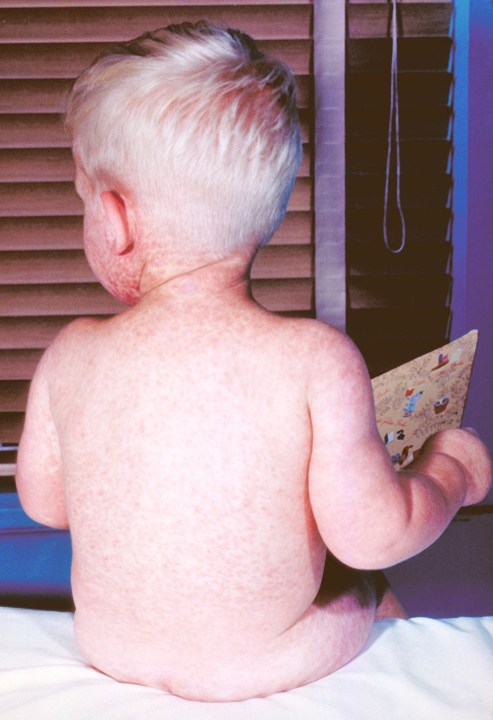Measles cases are rising in the US. What you need to know
- A measles outbreak in the U.S. is nearing 100 cases
- Measles is a highly contagious and serious illness
- Anti-vaccine sentiment is driving the rise of measles cases
Testing on staging11
(NewsNation) — The U.S. is experiencing an uptick in measles cases, with 97 cases reported to the Centers for Disease Control and Prevention as of March 28, 2024, a number that exceeds the 58 cases reported in all of 2023.
Scientists are worried the spread of these cases could jeopardize America’s measles-free status with the disease officially declared eradicated in the U.S. in 2000.
Here’s what you need to know about measles and what you can do to protect yourself.
How does measles spread?
Measles is a highly contagious disease that can spread through the air or on surfaces. It’s so contagious that 90% of people who are close to a measles patient and don’t have immunity will contract the illness.
“If you’re having an outbreak in your city and your child is unvaccinated, the virus will find your child,” infectious disease doctor Amesh Adalja told NewsNation. “This is so contagious.”
Measles is contagious four days before and four days after the characteristic rash develops. The virus can also live in the air and on surfaces for up to two hours after an infected person leaves the area. It can also take up to 21 days for an exposed person to develop measles.
Part of what makes measles so contagious is the time it can linger in an area, the length of time it can incubate and the fact that someone can spread it for days before they realize they are sick with measles. That leaves public health officials left to put together puzzle pieces to determine who may have been exposed and then quarantine those who are vulnerable to infection to try to stop the disease from spreading more.
What are the symptoms of measles?
Initial symptoms of measles resemble that of a bad cold or case of the flu until patients begin to develop the red rash that is characteristic of the disease.
At first, a measles patient may notice they have a high fever, runny nose, a cough and red, watery eyes. A few days later, white spots, known as Koplik spots, will start to form inside the mouth followed by a rash made of flat red spots that spread over the entire body.
How is measles treated?
For most people, there is no specific treatment for measles and treatment focuses on managing the symptoms. That includes medications to reduce fever, drinking plenty of fluids and avoiding bright light, which many people with measles find uncomfortable.
If someone has been exposed to measles and was not previously vaccinated, it is possible to get a post-exposure vaccine that can reduce the severity of measles or prevent it from developing.
For those who are considered extremely vulnerable, including pregnant women, those with compromised immune systems and infants, who have been exposed, treatment of immune serum globulin is used to try to prevent measles or reduce the severity.
Is measles dangerous?
While many people recover from measles, complications from the disease can be extremely severe and even deadly.
Before the measles vaccine was developed, the U.S. saw three to four million infections per year with around 500 deaths yearly, mostly in children.
The CDC estimates 1 in 5 unvaccinated people who develop measles will need to be hospitalized. Complications can include pneumonia and encephalitis, which can result in intellectual disability or deafness. Measles can also affect the eyes, causing blindness.
“Who wants to go through encephalitis? Who wants to go through pneumonia?” Dr. Dave Montgomery said on Morning in America, urging parents to vaccinate their children.
Measles also causes a phenomenon called immune amnesia, wiping out the immune system’s memory of all other illnesses. That makes people vulnerable to all other illnesses, including ones they may have already had and developed immunity to. Immune amnesia was only discovered in 2012, and scientists are still learning about it, but current estimates suggest it can take two or three years before the immune system gets back up to speed.
Measles can also cause a long-term complication called subacute sclerosing panencephalitis (SSPE) which appears seven to 10 years after someone appears to have recovered from measles. While rare, there is no treatment for SSPE and the disease is fatal between one and three years after diagnosis.
Why are measles cases rising?
The main driver behind the spread of measles is a decrease in childhood vaccination. The anti-vaccine movement has spread misinformation about the safety of vaccines, leading an increasing number of parents to seek exemptions for standard childhood vaccines like the Measles, Mumps and Rubella (MMR) or Measles, Mumps, Rubella and Varicella (MMRV) shot.
Some public officials have also chosen to spread doubt about vaccines or ignore standard public health guidance, including Florida Surgeon General Dr. Joseph Ladapo, who made the 21-day quarantine for unvaccinated children exposed at school optional, in defiance of CDC recommendations.
Appearing on NewsNation’s The Hill, Ladapo refused to answer whether or not he was anti-vaccine.
“People can call me pro-vaccine, anti-vaccine, I don’t care,” Ladapo said on “The Hill.” I am pro-health. I am the right of individuals to make choices about what they put in their bodies. That is a right from God. That is the right choice.”
People immigrating to the U.S. from countries where vaccines aren’t as accessible can also be infected with measles before they can get vaccinated. For infants, the first dose of the MMR vaccine isn’t given until 12 to 15 months, creating a window where they are vulnerable to infection.
Can you get measles if you are vaccinated?
In the vast majority of people, the MMR is successful at preventing illness. According to the CDC, two doses of the MMR are 97% effective, with only a few people failing to respond to the vaccine and develop immunity.
There are some cases where other medical treatments could affect the vaccine’s efficiency. Patients undergoing chemotherapy or treatments like bone marrow or stem cell transplants may lose immunity, though many cancer patients will continue to be protected by the vaccine.
For people who haven’t been vaccinated, the MMR is not recommended for anyone who is immunocompromised, including cancer patients, those taking immunosuppressant medication for conditions like autoimmune disease, transplant recipients and those with HIV because it is a live vaccine.
What should I know about the measles vaccine?
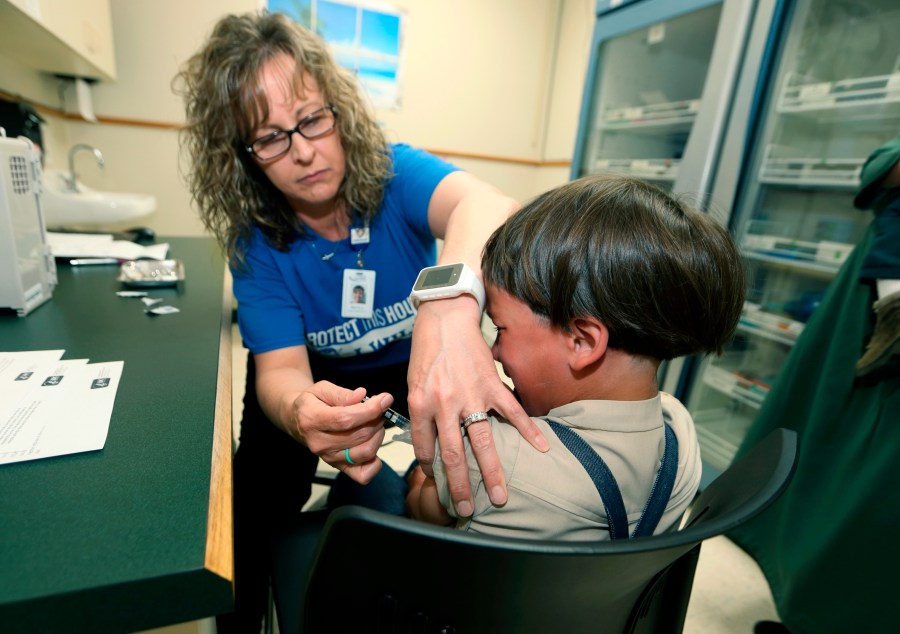
The MMR and MMRV are considered highly effective and safe and public health officials recommend everyone who is eligible be vaccinated.
Those born before 1957 are considered to be immune to measles through exposure since the first measles vaccine wasn’t discovered until 1958 and went into widespread use in the 1960s. In 1971 it was combined with vaccines for mumps and rubella to develop the MMR and in 2005 the varicella (chicken pox) vaccine was added to create the MMRV.
“This is a really robust vaccine that’s been tried and true for so long, so it’s really mind-boggling that people have turned against it,” Amdala said.
One dose of the MMR or MMRV is 93% effective against measles and two doses are 97% effective. The vaccines are considered safe and side effects are rare, with the most common being soreness and redness a the injection site.
Much of the skepticism around the MMR dates back to a study from Andrew Wakefield who claimed there was a link between the vaccine and autism. That study was flawed and has since been retracted. Wakefield was also stripped of his medical license over ethical concerns about the study and the fact he had a financial interest in discrediting the MMR.
Subsequent studies have shown no link between vaccines and autism.
What if I don’t know if I got the measles vaccine?
If you’re not sure if you were vaccinated against measles (or exposed for those born before 1957) or you have reason to believe their immune system could have been weakened, you can ask your doctor for an MMR titer.
A titer can be ordered by your doctor, or for those without a primary care physician, ordered directly from some labs.
Performed with a simple blood draw, the titer will test for antibodies in your blood and allow your doctor to determine if you are immune. For those without antibodies, doctors will likely recommend being vaccinated or revaccinated with the MMR.

